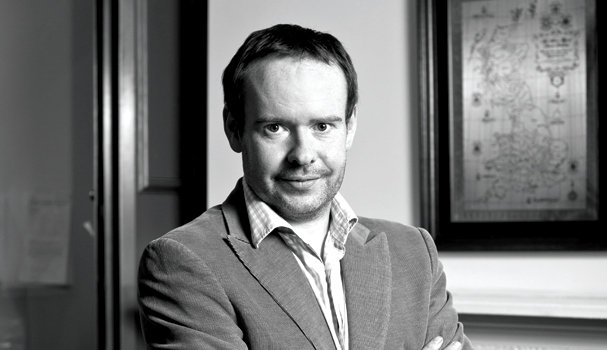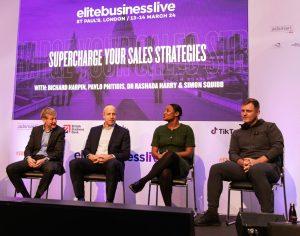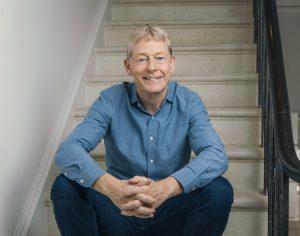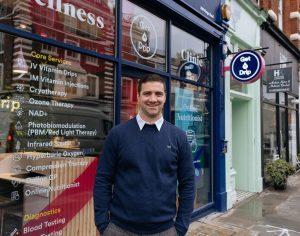All too often we hear about the losers of the recession; tales abound of businesses – large and small – going to the wall. Just last month, HMV and Blockbuster, two of the high street’s best-known brands, hit the runners.
And then, every once in a while, a business emerges triumphant, like a phoenix rising from the ashes of our once-thriving economy. Bullion By Post is one such firm. The founder of the Birmingham-based business, Rob Halliday-Stein, struck gold when he realised that the banking industry had gone to the dogs and people were looking for other ways and means to invest their cash.
It’s safe to say Halliday-Stein has always been quite keen to challenge the status quo. As a child, he was bright and inquisitive. “When I was three years old, I had a jumper with a big ‘Y’ on it; that probably sums up what I was like as a kid,” he jokes.
But his questioning mind paid off. He was one of the smartest kids in the year group at his primary school in Spark Hill, Birmingham, and the only one to pass his 11-plus exam. This won him a place at grammar school King Edward VI Five Ways.
This transition was a real eye-opener for him, he recalls. “Because I’d been the only kid from my school to pass the exam, I thought that everyone there must be really clever,” he says. “But then I got there and it wasn’t much different [to primary school]. The main thing that struck me was that everyone was very middle class.”
A pretty astute observation for an 11-year-old, one might argue. Despite his clear academic prowess, Halliday-Stein admits he was ‘lazy’ and did the bare minimum to achieve the grades needed to progress to Sixth Form and then university. He even chose his university based on the worse-case outcome of his A-level exams.
“I went to Sheffield to do economics mostly because they accepted general studies, and, although I knew I’d get an A grade in economics, I wasn’t sure I was going to do so well in physics,” he explains. “My view was that as long as you got the grades to get into where you wanted, that’s all that mattered.”
This was a theme that continued throughout his university career. “I wasn’t very focused on my studies at all while I was uni,” he says. “I was focused on doing the minimum to get a 2.1 and then getting out of there.”
His lack of motivation wasn’t helped by the fact that he wasn’t impressed by the teaching methods. “I was disappointed with the course,” he explains. “There was no room for discussion or understanding. It was very much ‘learn this theory and reproduce it in exams’. This is what people would do, get their 2.1 and go and get a good job in a bank in London.”
Ever the outlier, Halliday-Stein decided to pursue a career at opticians Dolland & Aitchison in Birmingham. After working there for the summer before he graduated, the company spotted his potential and offered him a graduate role. Having been declined a job at Accenture, he accepted D&A’s offer and relocated back to Birmingham.
All seemed to be going swimmingly: he was living back with his mother and was earning, comparatively speaking, a good wage. “It does make a difference when you and your mates all finish uni and you’re on well above £20,000 a year, and they’re on well below.”
But no sooner had Halliday-Stein moved back into his mother’s house than he burnt it down by not properly extinguishing his cigarette. “I lost everything, and the house was very badly damaged,” he recalls. “We were out for about six months while they did the work on it.”
To make matters worse, his mother was working in Russia for two months, so the 22-year-old Halliday-Stein was left to sort out the insurance and repairs to the family home. “She was very pragmatic about it,” he recalls. “She asked me if the office was still intact and I said yes. So she said, ‘Well, you’d better find the insurance paperwork and sort it out. I’m not coming back to sort it out.’”
After the repairs were completed, Halliday-Stein moved back into the house briefly, before deciding to live with his girlfriend. Things were good. He’d been promoted and was quickly progressing through the ranks at D&A. As a result, he’d been given a generous company car allowance. So, once he finally got around to taking his test, he watched as his brand new MR2 was delivered.
“It was quite nice getting a brand new sports car as a first car,” he says. “But it was also a bit stupid. They were running a book at work on how long it would take me to crash it. The person who won it put a week; I did it in about 20 hours.”
After substantial repairs, Halliday-Stein was given his car back. And he crashed it again. And again. After the third accident, the car was confiscated and replaced with a Toyota Yaris after he was sent on a driver assessment course. “Yeah, it was a bit embarrassing getting my car taken off me,” he admits.
Despite his automotive mishaps, Halliday-Stein’s star continued to rise and he worked diligently on D&A’s online offering. “We were the first optician to do online eyewear, so we were pretty cutting-edge,” he says. “It was interesting learning about ecommerce and I had a very autonomous role taking care of online. It was a great way to learn, being able to make little mistakes along the way and figuring out how to fix them.”
But, by the summer of 2007, Halliday Stein’s interest in spectacles began to wane. “I’d had enough of glasses,” he says. “I didn’t wear glasses. I wasn’t interested in sunglasses. I just felt I was ready to move on.”
With a few job offers on the table, he plumped for a role at Asda’s clothes business, George, heading up its online operations. Starting in October 2007, Halliday-Stein had quite a tall task on his hands. “They weren’t selling online, so I had to get the website ready. It was a fairly high-profile, well-paid job.”
Just as he was just finding his feet and getting used to the mechanics of working in a large company, his mother died in early 2008. Suddenly, Halliday-Stein had the task of organising the funeral and taking on certain family responsibilities, all the while juggling his senior role at George.
That’s not to say his employer wasn’t incredibly supportive of the situation. “Asda was very good at letting me go part-time, and have some time to get over it, because, to be honest, it was quite a shock.”
His mother’s passing also made Halliday-Stein take stock of his own future. “I was assessing what I wanted to be doing. When something like that happens, you realise you can die tomorrow and it makes you think about what you want to be doing with your time and your life,” he explains.
The budding entrepreneur’s first venture was a fashion aggregation website called EveryStyle. “I didn’t think it made sense to have a warehouse full of clothes when you could make money just getting traffic on a website,” he says. Halliday-Stein’s website would carry other retailer’s clothes that people could search through. “It was like a search engine for clothes,” he adds.
He started getting some development work done in the Ukraine while he assessed his options for investing the rest of the money his mother had left him. “This was against the background of RBS going bust and the banks were in crisis,” he recalls. “Putting some money into gold and silver seemed appealing.”
But as Halliday-Stein set about researching where he could buy gold and silver, he realised it wasn’t as easy as he’d first envisaged. “All the websites were awful,” he claims. “I was looking around at where to buy it and I finally gave up on all of the places I’d found online, because they were either very expensive or arrogant, or both.”

For Halliday-Stein, it was customer service skills that were lacking. “If you’re looking to spend £20,000, £30,000 or £40,000, and the people you’re dealing with seem fairly disinterested, it puts you off a little bit. To them it may not be a lot of money; to a customer it may be their whole life savings.”
Eventually, he found someone in Birmingham’s bustling Jewellery Quarter to sell him gold and silver. Given the difficulty he’d had locating the right person, it occurred to Halliday-Stein that others may be in a similar position, but didn’t have access to Birmingham’s famous Jewellery Quarter – the biggest in Europe – on their doorstep.
This hunch was reaffirmed by some market research. “I went down to London to one of the bullion dealers and customers were literally queueing out of the door to buy gold and silver. Most of them were buying kilos, which at the time was about £20,000. And they were charging 5%, making £1,000 per customer,” he explains.
It was enough to convince Halliday-Stein that there was an untapped opportunity in selling bullion. Not quite ready to press the stop button on his fashion website, he juggled the two start-up projects until January 2009, when he switched on the gold website. “One’s more than enough to do, really,” he says. “So the fashion site fell away into the background and Bullion By Post started taking up all of my time.”
Progress was slow, but steady. Because the value of what he was selling was so high, revenues seemed impressive for a start-up: the turnover in the first month was £250,000. “That sounds phenomenal for any business, but the margins were only a few percent, and then there were the costs. I was spending every penny that came in on advertising,” he explains.
After a busy end to 2009, Halliday-Stein began to panic a little when business tailed off at the beginning of 2010. “The market was so quiet. It was the first time there had been more [money] going out than coming in, and I began to wonder if I had just got lucky at first.”
The slump didn’t last: in 2010 things picked up to such an extent the company had to move office and take on more staff. The decision to take on a big five-year lease that summer was incredibly daunting, says the entrepreneur. “It was a big call. Taking on a long lease like that and then paying to get it kitted out with safes and cameras.”
It was well worth the punt. Last year, Bullion By Post turned over £55m, and this year it’s on track for revenues of £65m. But Halliday-Stein is quick to admit that turnover isn’t everything. “Turnover is vanity and profit is sanity. I’m a big believer in that,” he says. “I’m not running a business to look cool – it’s about making money.” Bullion By Post has got that covered too: last year it posted £1.5m profit. Not bad for a company only in its third year of existence.

Yet it would seem that for Halliday-Stein, the emphasis is on building a successful and sustainable business, rather than waiting for the millions to hit his bank account. “The aim of building a successful business is quite exciting, but the actual making of a significant amount of money is not that exciting; it’s not a goal to chase,” he says. “I can buy anything I want. But when you can buy anything you want, it becomes less exciting.”
It’s not a bad problem to have, most will agree. But Halliday-Stein says his success is down to determining a clear strategy. He hasn’t reinvented the wheel, he says. “People have been selling gold bars for years and years. It’s not a revolutionary idea. We just did it slightly differently and slightly better,” he explains, modestly.
His best piece of advice for wannabe entrepreneurs is to make sure they know how they will stand out from the crowd. “Study how the competition is doing it. Then make sure you do it ten times better.” ![]()
Share via:


















































